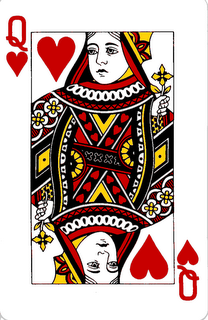The House Always Wins. So Does the Senate.
 President Bush today signed into law the SAFE Port Act which aims to strengthen our...well...ports. It provides funding and programs for improved cargo container inspection. Attached to this bill at the last minute, however, is a federal ban on banking institutions knowingly transferring funds to businesses or individuals that may conduct gambling operations in states and areas where gambling is prohibited.
President Bush today signed into law the SAFE Port Act which aims to strengthen our...well...ports. It provides funding and programs for improved cargo container inspection. Attached to this bill at the last minute, however, is a federal ban on banking institutions knowingly transferring funds to businesses or individuals that may conduct gambling operations in states and areas where gambling is prohibited.
This online gambling ban was previously a bill unto itself (known as the Unlawful Internet Gambling and Prohibition Act) but it had received such significant opposition in the Senate that it had been practically dead since July. In response, Bill Frist was able to have it tacked on to the SAFE Port Act: a bill that no one in their right mind would want to come out and openly oppose so close to the elections ("so senator, you oppose container security?").
If you look at the bill, the on-line gaming provisions are at the very end and have absolutely nothing to do with what preceeds it.
While this bill doesn't out-and-out prohibit on-line gambling, it does the next best thing via financial attrition; it makes it impossible to settle bets on-line via any banking system. Eventually a system is to be set up to block such transfers.
I don't like gambling. I've never been particularly lucky, and I enjoy the security of knowing that I will in fact receive something in return when I put money down on a table (aka "a purchase").
I have friends, however, who love it. They love the thrill, and an ex-flatmate of mine has actually started supplementing his income via on-line gambling. He has a gambling "problem" in the sense that he's so good at it, it's actually profitable.
I think this bill smacks of hypocrisy and Republican paternalism fueled by sense of moral superiority. First, people who are prone to abuse gambling are going to do it whether or not there is on-line gambling. There's still horse racing (provided by the Interstate Horseracing Act of 1978), Indian gaming, lotteries (a state monopoly no less), and casinos, not to mention the dodgy illegal venues that I'm sure everyone has heard of.
Second, on-line gambling was making gambling cheaper through competition and low-overhead. Exchanges have lowered the costs betting by cutting out bookmakers, and payouts have risen accordingly. This made gambling less dangerous, not more.
Third, by eliminating credit cards you are eliminating a safe-guard that can establish age and betting limits. This can drive people to some of the more riskier options.
I think Internet gambling has risks. Verifying age is difficult, and since you have no idea who you're playing against, you could be more vulnerable to swindlers. But prohibition is not the answer and this would be throwing the baby out with the bathwater (should we outlaw on-line sales because of potential abuse?), not to mention that it never works (see 18th Amendment). Regulate it, but don't prohibit it.
This bill is not about protecting gambling addicts. It's about protecting brick and mortar gambling houses and the states own monopolies while galvanizing the Christian right with the Republicans under a veil of outlawing sin. This game is gettin' old. I fold.
See article.
UPDATE 10.16.06
I spoke with my friend who plays on-line Texas hold-em as a lucrative hobby and he said that he thinks he'll still be able to go through Europe, so all is not lost.


1 comment:
Even if it were about protecting gambling addicts....should big brother really be babysitting adults?
I can't stand these types of laws that aim to protect people from themselves...ala seat belt laws for adults.
hmm....
Post a Comment